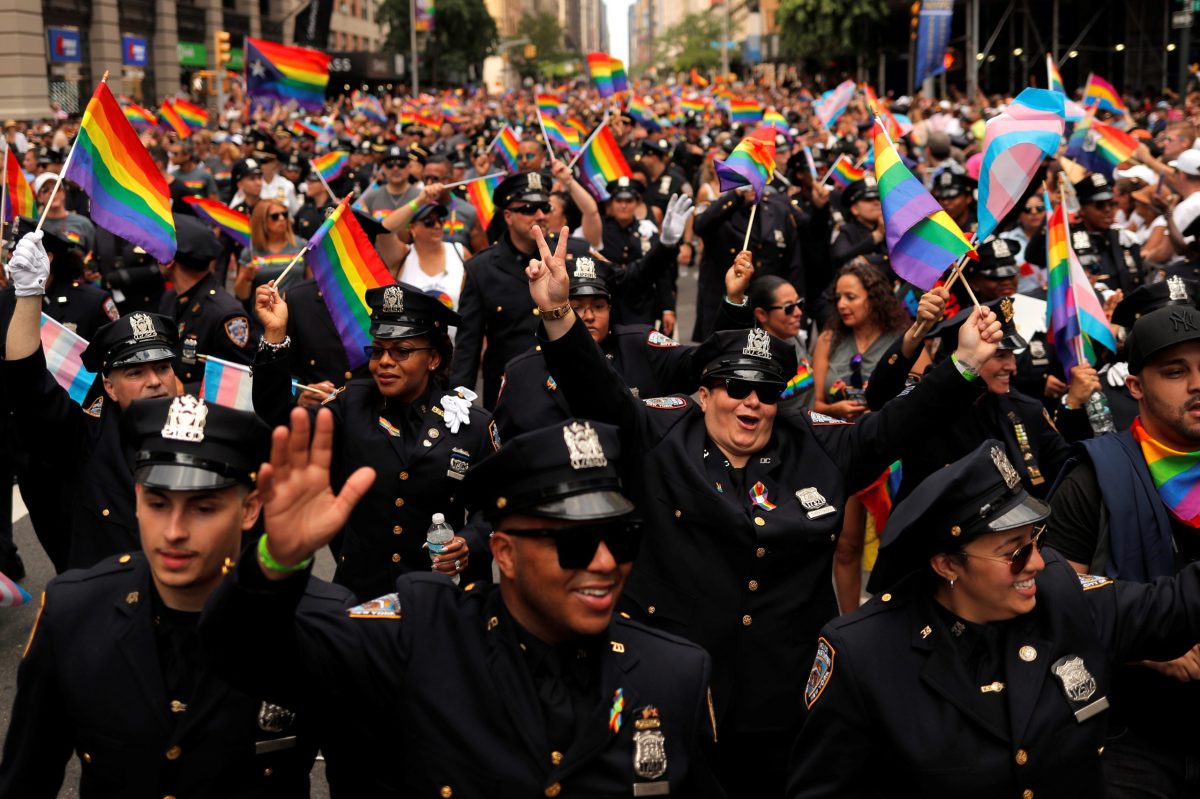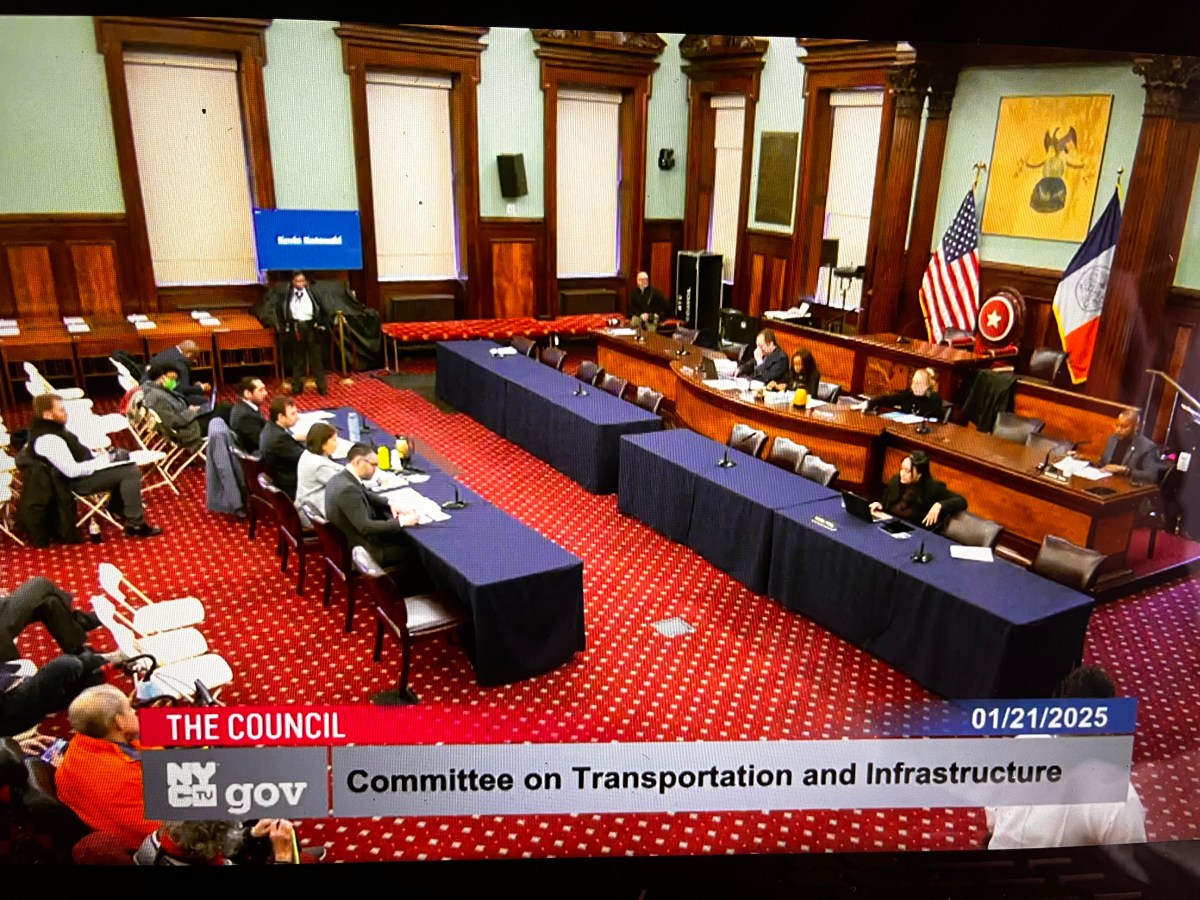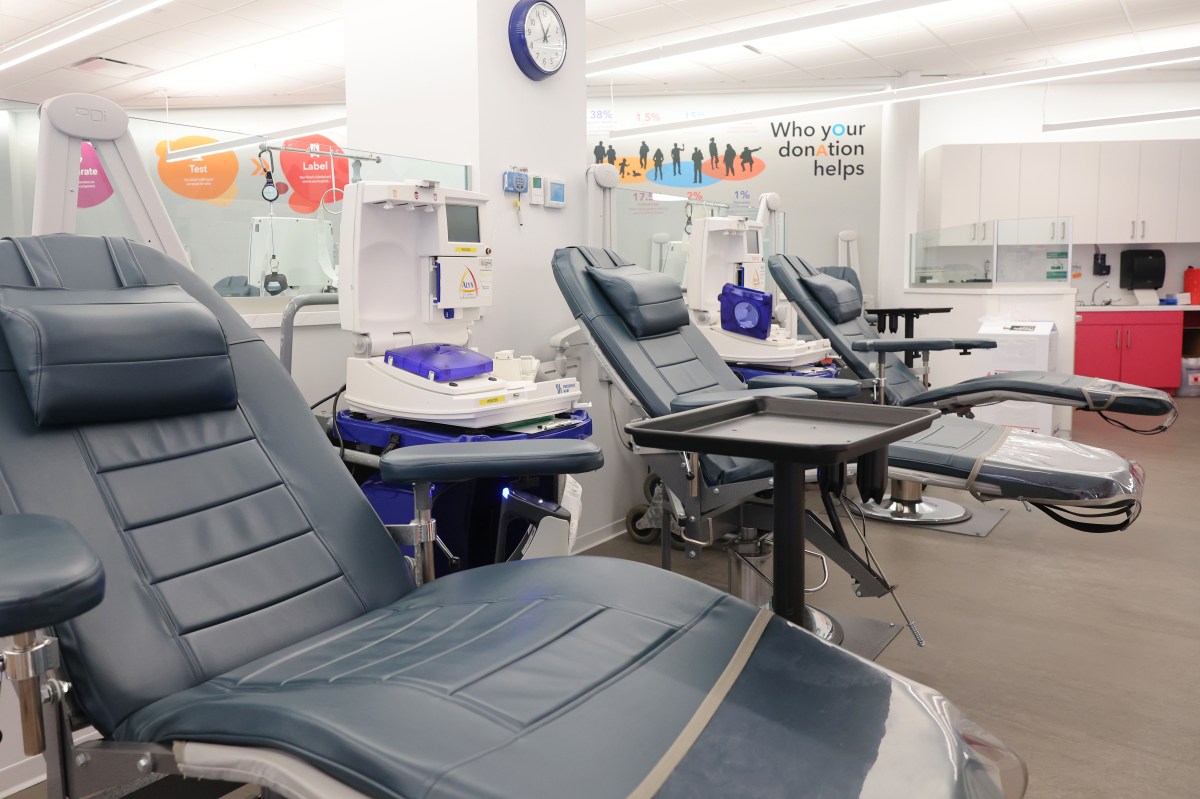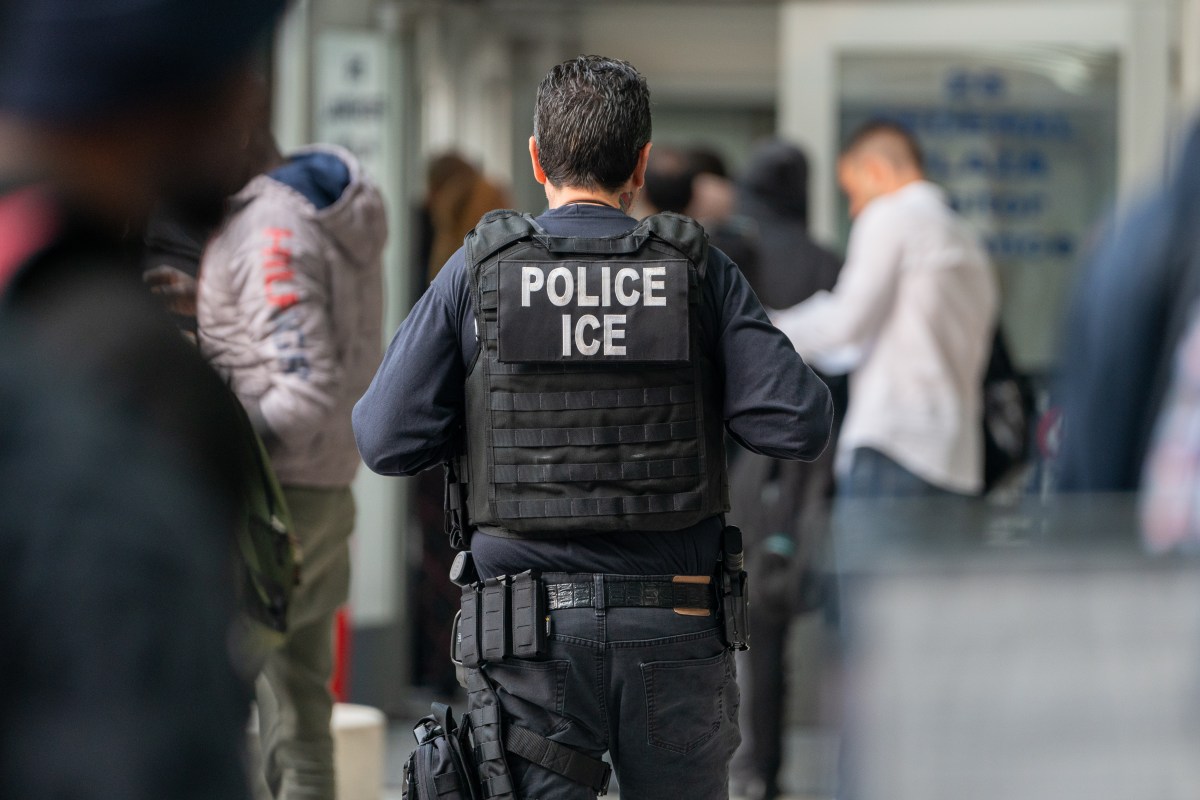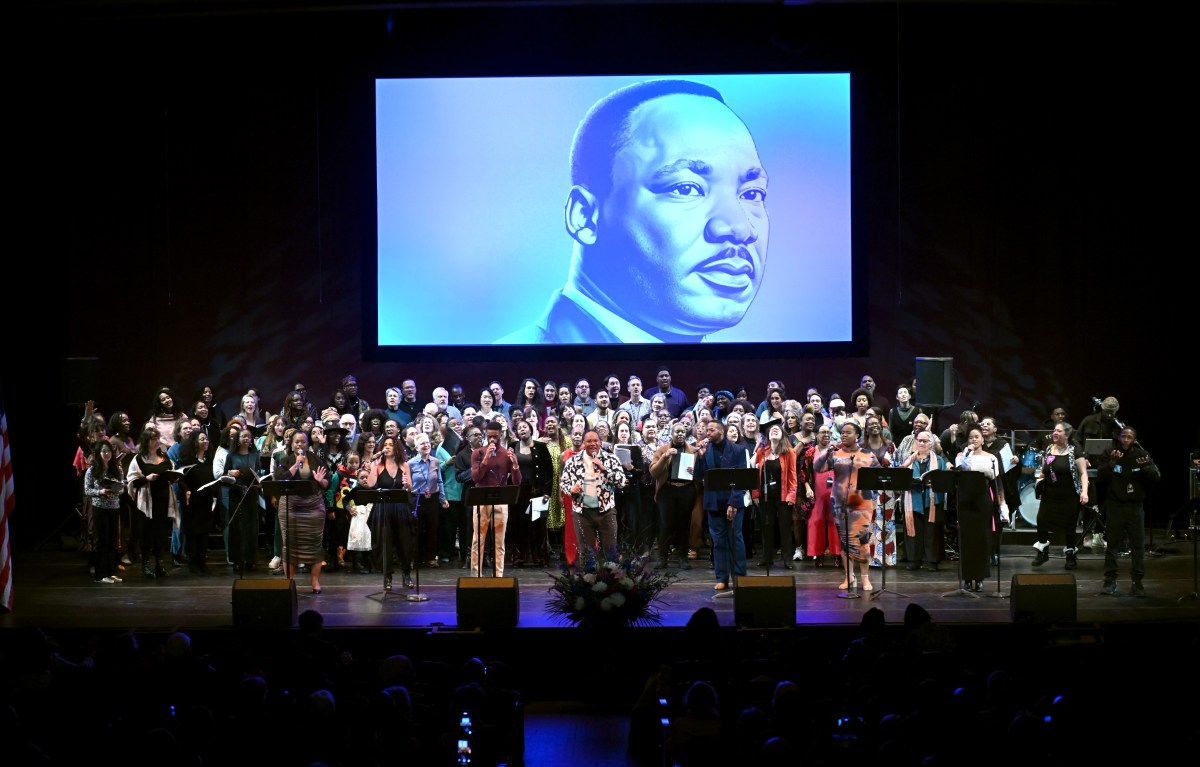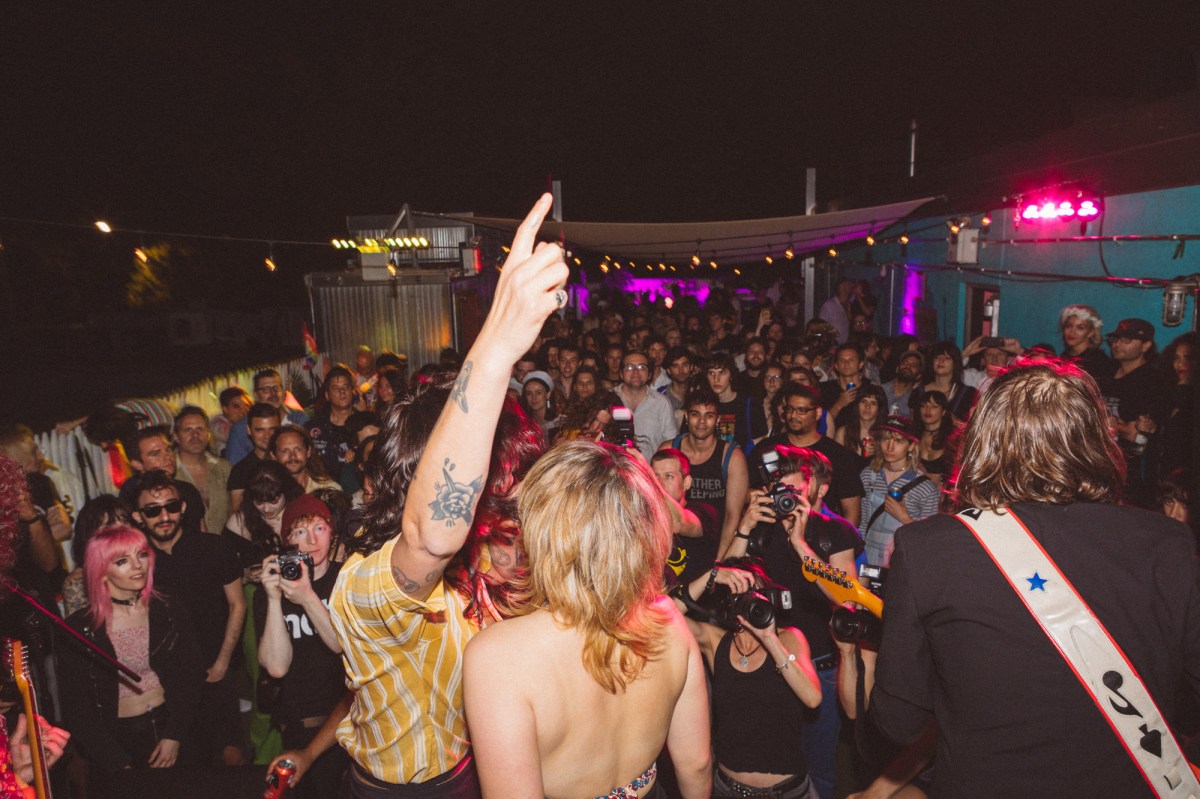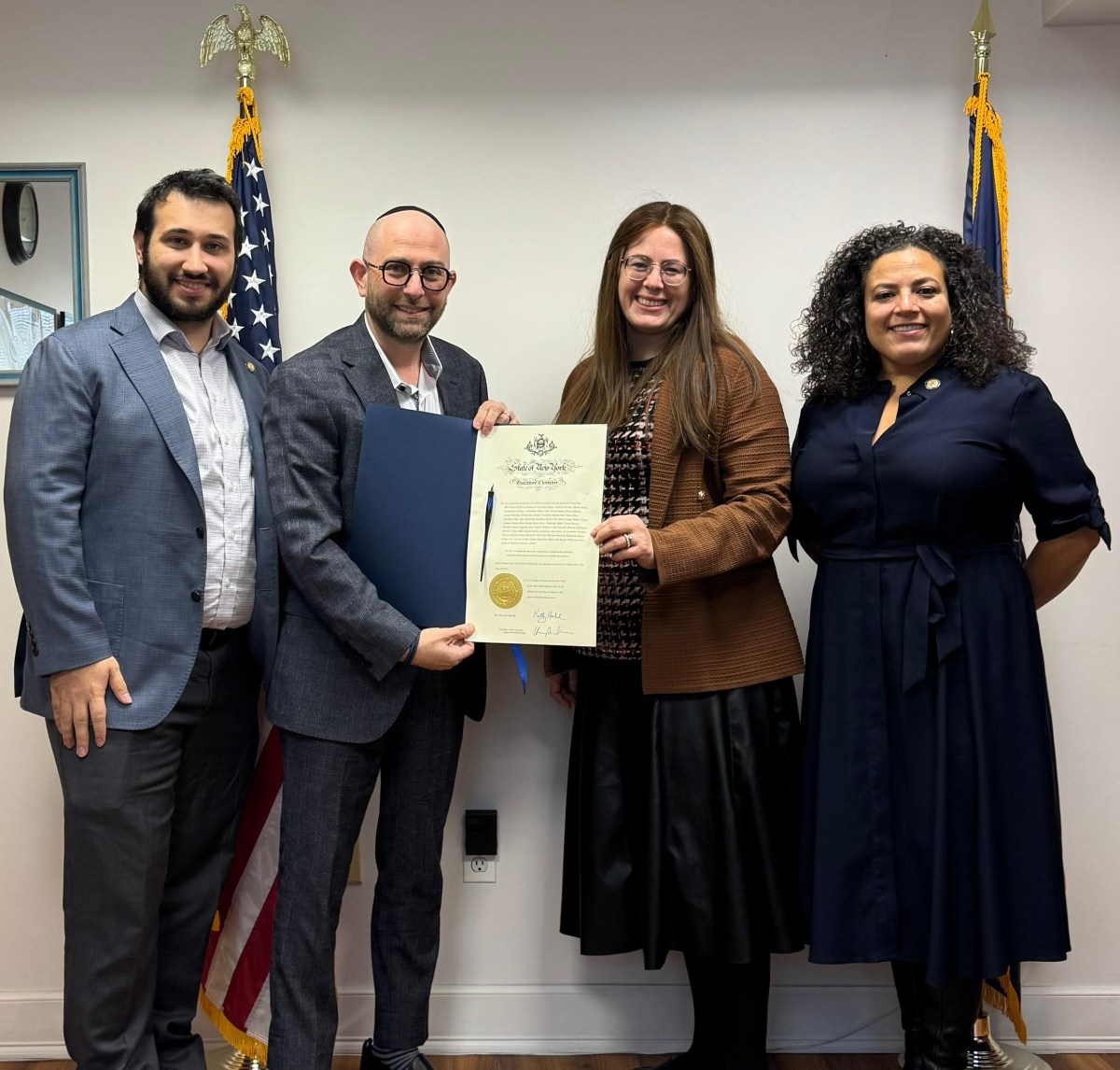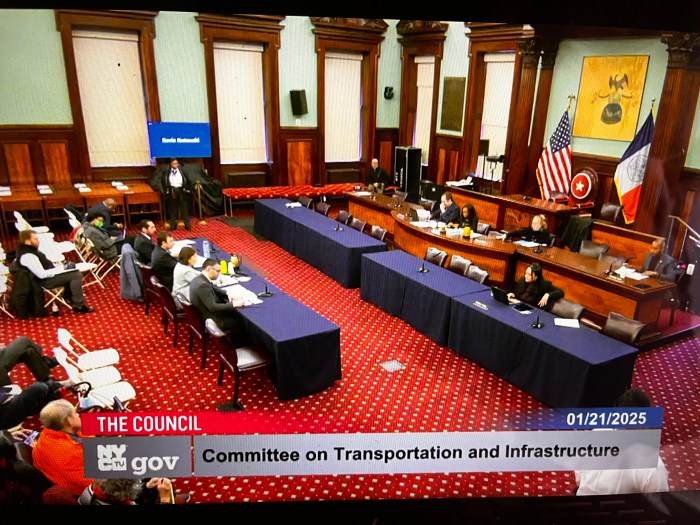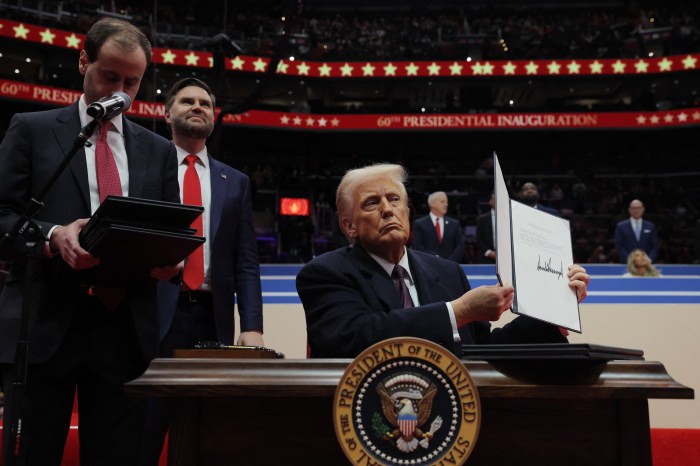BY RACHEL SAVAGE, Thomson Reuters Foundation
Calls are growing for police to be banned from marching in Pride parades and for the LGBT+ events to return to their roots as rebellions against police brutality amid a rolling, global anti-racism movement.
While Prides have mostly been cancelled or moved online due to the coronavirus pandemic, the marches that kick off in June – known as Pride Month – have long faced criticism for allowing companies and uniformed police to participate.
The modern LGBT+ rights movement began in 1969 when police raided The Stonewall Inn in New York City and patrons fought back, including transgender activists Marsha P. Johnson and Sylvia Rivera, who were black and hispanic respectively.
“The police continue with racist violence to this day, just as they did in 1969 during the Stonewall riots,” said Natalie James, who co-founded the Reclaim Pride Coalition in 2018 to demand New York City Pride decrease the presence of police.
The group held a “Queer Liberation March” in 2019, to protest the commercialisation of the event and allowing police marching in the official Pride parade that was attended by millions of people a few blocks away.
The killing by police in Minneapolis of 46-year-old George Floyd, an unarmed black man, on May 25 sparked global protests against police brutality and racism, as well as calls by many LGBT+ people for their communities to do more to address racism.
“Oftentimes people can see at Pride the police presence as being inflammatory,” said Imara Jones, a trans woman based in New York City and the creator of TransLash, a media organisation dedicated to telling transgender stories.
“On the other hand, there are members of the police that are LGBTQ, and I think that there’s some tension about how they can be recognised.”
Toronto Pride was one of a number of Canadian Prides that banned police from marching in uniform in 2017 in response to demands by Black Lives Matter Toronto. The ban was also imposed in 2018 and 2019.
“The first thing to acknowledge is the hurt and the pain that is historical in the relationship between police and the LGBTQ community,” said Joe Couto, a spokesman for the Ontario Association of Chiefs of Police.
LGBT+ police officers would be in a “difficult position” if they couldn’t be part of Prides, said Couto, who has also researched LGBT+ police officers in Canada.
“Gay police officers, they want to be part of Pride, they want to be part of the community, they want to be bridge-builders.”



